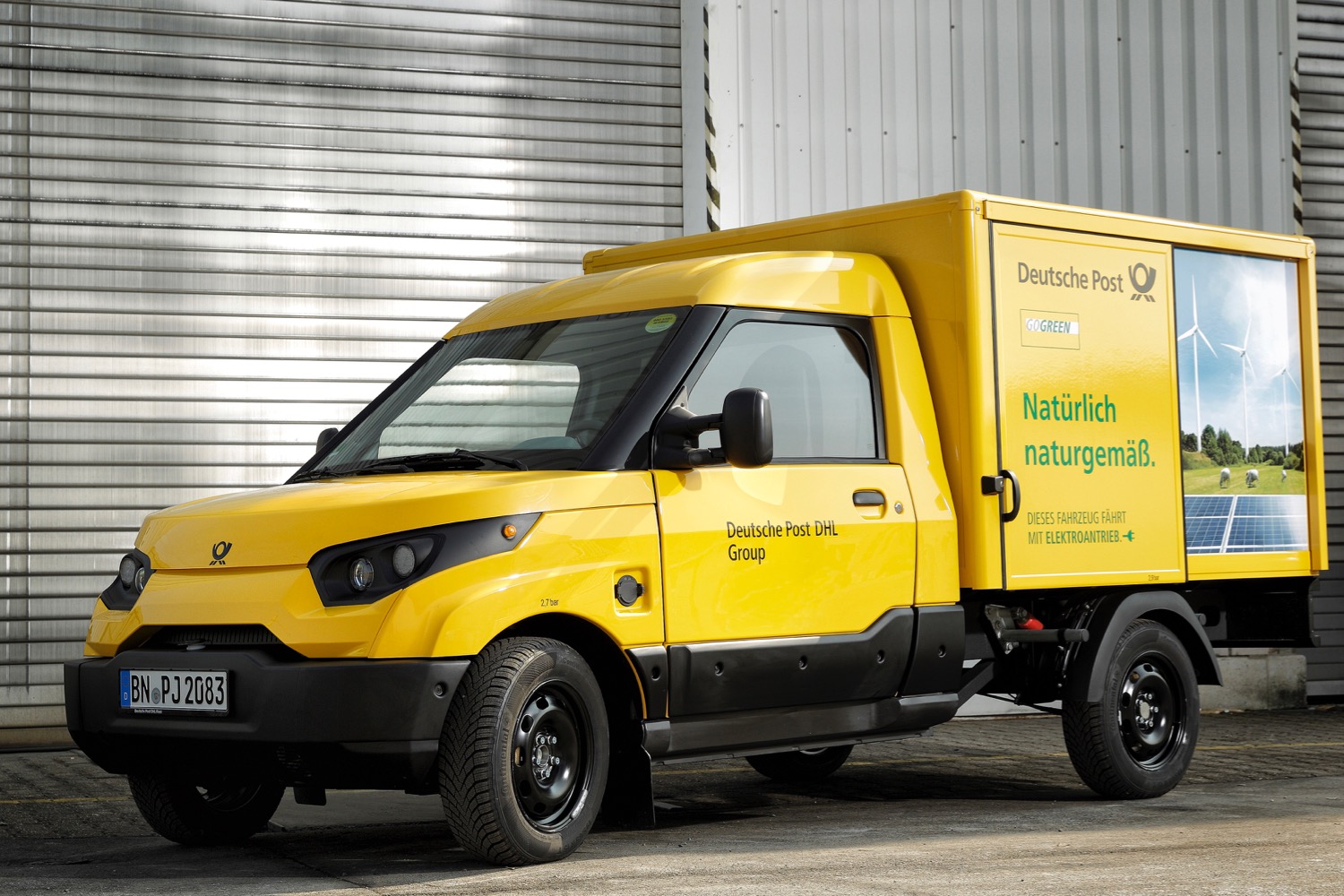
When Deutsche Post DHL Group decided to add electric delivery vans to its fleet, nothing suitable was available. So in 2014, DHL bought a company called Streetscooter, which makes electric vans. Now DHL is bringing those vans to the United States. Why should cars be the only vehicles getting electric powertrains?
Electric vans will be used in a U.S. pilot program for DHL’s package delivery service beginning in 2020, according to a company press release. DHL also intends to set up a production line in the U.S. The pilot program will use an updated model called the Work L, which greater cargo capacity than previous versions, and a faster charging system. It even has Apple CarPlay and Android Auto.
The Work L is a smaller van comparable to the Ford Transit Connect or Ram ProMaster City. DHL also previously partnered with Ford on an electric version of the automaker’s larger Transit van. Called the Work XL, it used a modular battery pack that allowed for a range of between 49 miles and 124 miles, according to the companies. However, no plans to bring the Work XL to the U.S. have been discussed.
DHL claims to have 12,000 electric delivery vehicles in daily service, with over 100 million kilometers (about 62 million miles) driven to date. In addition to building vans for DHL’s own fleet, Streetscooter sells them to other businesses. Streetscooter claims to have 13,500 charging stations at 700 depots owned by various firms, from large companies to small businesses. Range anxiety is less of an issue with commercial vans than it is with passenger cars because the vehicles travel on predictable routes that never take them far from a central depot.
Streetscooter isn’t the only company selling electric vans. Electric versions of the Nissan NV200 and Renault Kangoo are available in Europe alongside StreetScooter’s vans, while Mercedes-Benz has announced plans for an electric version of its Sprinter. In the U.S., Workhorse Group sells electric delivery vans that can be paired with drones, and startup Chanje has promised to join the fray with support from a Chinese manufacturer. Amazon recently made headlines when it ordered 100,000 electric vans from another startup, Rivian, but the company has yet to deliver a single vehicle to a customer.
Editors' Recommendations
- Fake engine noises in electric cars need to die
- Mercedes’ electric eSprinter isn’t just greener, it’s better
- Kia reinvents the van with its electric Platform Beyond Vehicles
- Cadillac aims to balance its lineup with a small electric SUV
- The Lucid Gravity has more range than any other electric SUV


